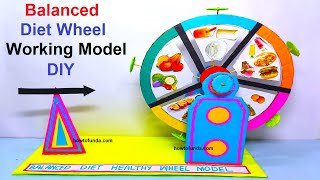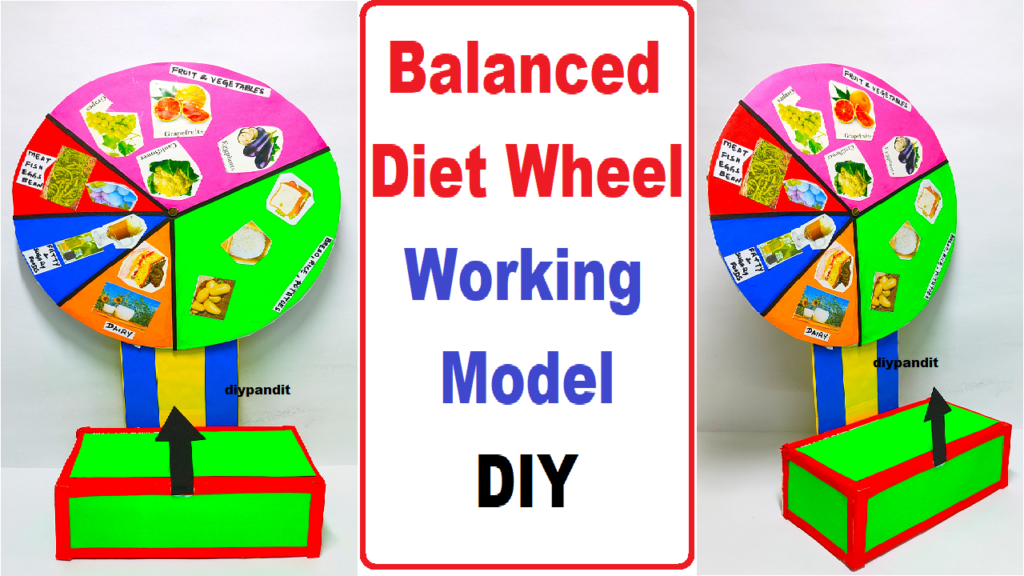Contents:
- Introduction
- What is a Balanced Diet?
- Components of a Balanced Diet
- Nutritional Requirements for Different Age Groups
- Benefits of a Balanced Diet
- Consequences of an Unbalanced Diet
- Designing a Balanced Diet Plan
- Case Studies
- Tips for Maintaining a Balanced Diet
- Conclusion
- References
1. Introduction
A balanced diet is essential for maintaining good health and well-being. It provides the necessary nutrients for the body’s growth, development, and proper functioning.

This project aims to explore the concept of a balanced diet, its components, benefits, and how to create and maintain a balanced diet plan.
2. What is a Balanced Diet?
A balanced diet includes a variety of foods in the right proportions to provide the essential nutrients the body needs.
These nutrients include carbohydrates, proteins, fats, vitamins, minerals, and water. A balanced diet ensures that the body receives adequate energy, promotes overall health, and helps prevent diseases.
3. Components of a Balanced Diet

3.1. Carbohydrates
Carbohydrates are the body’s primary energy source. They are found in foods such as bread, rice, pasta, fruits, and vegetables.
Carbohydrates should make up about 45-65% of the total daily caloric intake.
3.2. Proteins
Proteins are essential for growth, tissue repair, and the production of enzymes and hormones. Sources of protein include meat, fish, eggs, dairy products, legumes, and nuts. Proteins should make up about 10-35% of the total daily caloric intake.
3.3. Fats
Fats provide energy, support cell growth, protect organs, and help the body absorb vitamins. Healthy fats are found in oils, nuts, seeds, avocados, and fatty fish.
Fats should make up about 20-35% of the total daily caloric intake.
3.4. Vitamins and Minerals
Vitamins and minerals are essential for various bodily functions, including immunity, bone health, and wound healing. They are found in fruits, vegetables, dairy products, meat, and grains.
A balanced diet should include a variety of foods to ensure adequate intake of all vitamins and minerals.
3.5. Water
Water is crucial for hydration, digestion, and the transportation of nutrients. It is recommended to drink at least 8 glasses (about 2 liters) of water per day.
4. Nutritional Requirements for Different Age Groups
4.1. Children
Children require a diet rich in proteins, calcium, iron, and vitamins to support their growth and development. Foods such as milk, eggs, fruits, vegetables, and whole grains are essential.
4.2. Adolescents
Adolescents need increased amounts of calories, proteins, and calcium to support rapid growth and hormonal changes. A diet including dairy products, lean meats, fruits, vegetables, and whole grains is recommended.
4.3. Adults
Adults require a balanced diet to maintain their health and prevent chronic diseases. A diet rich in fruits, vegetables, lean proteins, whole grains, and healthy fats is essential.
4.4. Elderly
Elderly individuals need fewer calories but more vitamins and minerals like calcium and vitamin D to support bone health. Foods such as dairy products, lean proteins, fruits, vegetables, and whole grains are important.
5. Benefits of a Balanced Diet
5.1. Improved Energy Levels
A balanced diet provides the necessary nutrients to keep energy levels stable throughout the day.
5.2. Enhanced Immunity
Proper nutrition helps strengthen the immune system, making the body more resistant to infections and diseases.
5.3. Healthy Weight Management
A balanced diet helps maintain a healthy weight by providing the right amount of calories and nutrients.
5.4. Better Mental Health
Certain nutrients, such as omega-3 fatty acids, vitamins, and minerals, play a role in brain health and can improve mood and cognitive function.
5.5. Reduced Risk of Chronic Diseases
A balanced diet can help prevent chronic diseases such as heart disease, diabetes, and certain cancers by providing essential nutrients and maintaining a healthy weight.
6. Consequences of an Unbalanced Diet
6.1. Malnutrition
An unbalanced diet can lead to malnutrition, where the body does not receive the necessary nutrients, resulting in various health issues.
6.2. Obesity
Consuming too many calories and unhealthy foods can lead to obesity, increasing the risk of chronic diseases.
6.3. Deficiency Diseases
Lack of essential nutrients can lead to deficiency diseases such as scurvy (vitamin C deficiency), rickets (vitamin D deficiency), and anemia (iron deficiency).
6.4. Weakened Immune System
Poor nutrition can weaken the immune system, making the body more susceptible to infections and diseases.
7. Designing a Balanced Diet Plan
7.1. Assessing Nutritional Needs
Evaluate the individual’s age, gender, activity level, and health status to determine their nutritional needs.
7.2. Planning Meals
Include a variety of foods from all food groups in the right proportions. Ensure that meals provide the necessary macronutrients (carbohydrates, proteins, fats) and micronutrients (vitamins, minerals).
7.3. Portion Control
Use portion control to avoid overeating and ensure that the diet is balanced and provides the right amount of calories.
7.4. Regular Meals
Encourage regular meals and snacks to maintain energy levels and prevent overeating.
7.5. Hydration
Ensure adequate water intake to support overall health and bodily functions.
8. Case Studies
8.1. Mediterranean Diet
The Mediterranean diet, rich in fruits, vegetables, whole grains, nuts, and olive oil, is known for its health benefits, including reduced risk of heart disease and improved longevity.
8.2. DASH Diet
The Dietary Approaches to Stop Hypertension (DASH) diet focuses on reducing sodium intake and consuming nutrient-rich foods to manage and prevent high blood pressure.
9. Tips for Maintaining a Balanced Diet
- Eat a Variety of Foods: Include different foods from all food groups to ensure a balanced intake of nutrients.
- Avoid Processed Foods: Limit the consumption of processed and junk foods high in sugars, fats, and sodium.
- Read Food Labels: Check food labels to make informed choices about the nutritional content of foods.
- Plan Meals Ahead: Plan meals and snacks in advance to ensure a balanced diet and avoid unhealthy choices.
- Stay Hydrated: Drink plenty of water throughout the day to support overall health.
10. Conclusion
A balanced diet is crucial for maintaining good health and well-being. It provides the essential nutrients needed for the body’s growth, development, and proper functioning.
By understanding the components of a balanced diet and the benefits it offers, we can make informed choices about our dietary habits and promote a healthier lifestyle.

